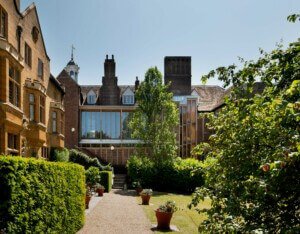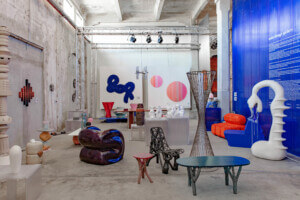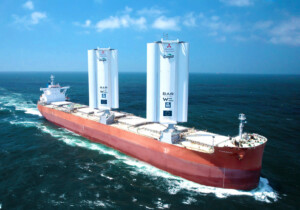Last week, doctors, architects, and funeral directors gathered in a Seattle warehouse to toast the first project site for Recompose, a company that offers composting as a “gentle” and natural alternative to cremation and burial. Founded by Katrina Spade, the company converts human remains into soil “so that we can nourish new life after we die.” Seattle-based firm Olson Kundig is heading up the project and revealed renderings for the 18,500-square-foot facility, which is slated for completion in early 2021 in Seattle’s SoDo neighborhood.
The project is led by Olson Kundig principal Alan Maskin, who is also a part of Recompose’s team, and project manager Blair Payson. “Six years ago, Katrina walked into our studio and had the craziest idea I’d ever heard,” said Maskin, according to The Seattle Times, “I had this transition of shock from ‘oh my God I’m going to die’ to thinking this is something I need to do—something the world needs to do.”
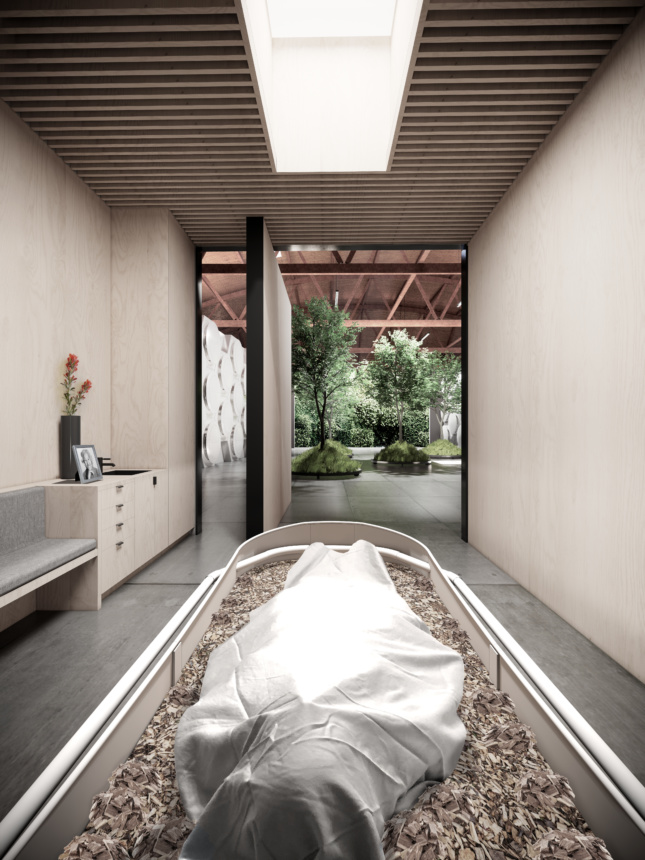
The team’s vision involves bodies being placed inside of a modular system of reusable, hexagonal “Recomposition Vessels” which are aerated and covered in wood chips to promote break down. When the process is finished, families will be able to take home some or all of the soil created (one cubic yard, or to put in perspective, several wheelbarrows full), and it’s anticipated the rest will go towards reforestation efforts in Washington.
“The core of the new facility’s space is a modular system containing approximately 75 of these vessels, stacked and arranged to demarcate space for rituals and memorial ceremonies,” according to a recent press release from the design team. One rendering shows an aerial view of a ceremony taking place with visitors gathered around in a circle surrounded by walls composed of hexagonal portals, ample biophilic influences, and an arched wooden ceiling.
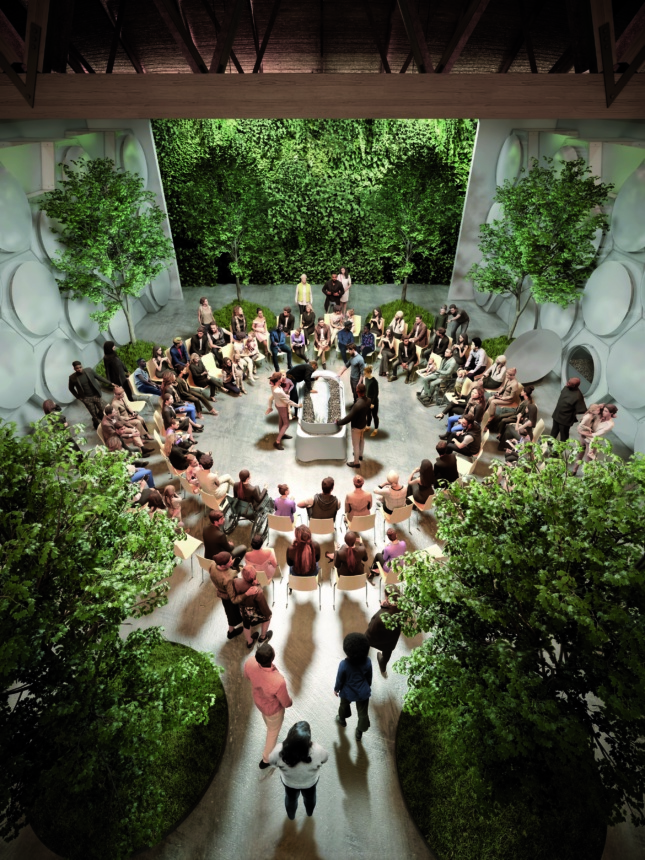
The interior will consist of trees planted on top of grassy mounds which have the ability to be moved and rearranged across the concrete floor during ceremonies and rituals. Landscaping is planned to surround the space’s ramped entrance and a living wall will span one section of the facility. Seamless transportation of the bodies through moveable vessels is key and pivoting doors will help facilitate the circulation between ceremonial and preparation spaces.
The natural organic reduction process requires an eighth of the energy needed for cremation and has calculated carbon savings of over a metric ton per person. The process also prevents embalming fluid from polluting groundwater and minimizes the waste from the production of caskets, headstones, and grave liners. All of which is to say, Recompose’s method is pitched as being more sustainable than conventional after-death practices.
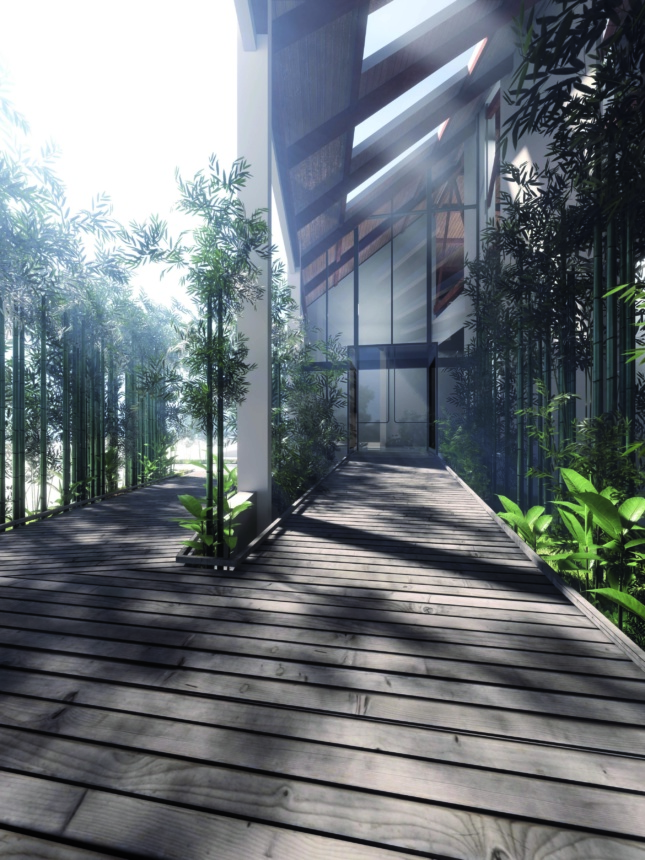
Despite the carbon-sequestering impact, Washington is so far the only U.S. state to have legalized human composting and Recompose claims to be “the first facility in the world to provide a sustainable option for after-death care,” Spade told CityLab. Addressing the group present at the Recompose “housewarming party,” Spade shed some light on the matter, “You all have one thing in common…you are all members of the death-care revolution.”








